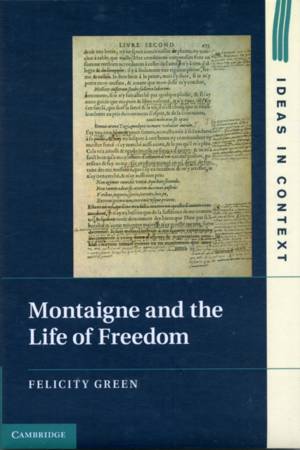
- Afhalen na 1 uur in een winkel met voorraad
- Gratis thuislevering in België vanaf € 30
- Ruim aanbod met 7 miljoen producten
- Afhalen na 1 uur in een winkel met voorraad
- Gratis thuislevering in België vanaf € 30
- Ruim aanbod met 7 miljoen producten
Zoeken
€ 125,95
+ 251 punten
Uitvoering
Omschrijving
More than any other early modern text, Montaigne's Essais have come to be associated with the emergence of a distinctively modern subjectivity, defined in opposition to the artifices of language and social performance. Felicity Green challenges this interpretation with a compelling revisionist reading of Montaigne's text, centred on one of his deepest but hitherto most neglected preoccupations: the need to secure for himself a sphere of liberty and independence that he can properly call his own, or himself. Montaigne and the Life of Freedom restores the Essais to its historical context by examining the sources, character and significance of Montaigne's project of self-study. That project, as Green shows, reactivates and reshapes ancient practices of self-awareness and self-regulation, in order to establish the self as a space of inner refuge, tranquillity and dominion, free from the inward compulsion of the passions and from subjection to external objects, forces and persons.
Specificaties
Betrokkenen
- Auteur(s):
- Uitgeverij:
Inhoud
- Aantal bladzijden:
- 265
- Taal:
- Engels
- Reeks:
- Reeksnummer:
- nr. 101
Eigenschappen
- Productcode (EAN):
- 9781107024397
- Verschijningsdatum:
- 29/06/2012
- Uitvoering:
- Hardcover
- Formaat:
- Genaaid
- Afmetingen:
- 152 mm x 231 mm
- Gewicht:
- 498 g

Alleen bij Standaard Boekhandel
+ 251 punten op je klantenkaart van Standaard Boekhandel
Beoordelingen
We publiceren alleen reviews die voldoen aan de voorwaarden voor reviews. Bekijk onze voorwaarden voor reviews.











